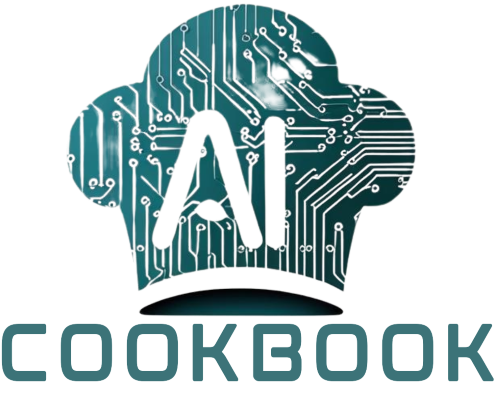How Can We Help?
-
AI Tools for Migrant Education
- Automatic Speech Recognition (ASR)
- Chat GPT and others
- Chatbots
- DeepL
- Die Rolle Künstlicher Intelligenz beim Deutsch als Fremdsprachelernen: Eine Untersuchung am Beispiel von ChatGPT
- Evaluation questions for choosing AI tools
- Grammarly
- KI für Bildungszwecke: Brauchen wir ein Monitoring von KI-Tools und KI-Akteuren?
- Leveraging innovative technology in literacy and education programmes for refugees, migrants and internally displaced persons
- LinkedIn Interview Preparation Tool
-
Assessment
-
Empowering Migrant Learners
-
Literature
- AI i klassrummet: Det säger forskningen
- AI in inclusive education which differences in research trend
- AI-snack aktuell forskning med Mattias Wickberg Hugerth
- Artificial intelligence in GFL lessons. Promoting mediation with AI applications
- Artificiell intelligens iundervisningen - En lägesbild över lärares användning och hantering av AIi grundskolan, förskoleklass och fritidshem under 2024
- CFU-konsulent: Det gør noget ved lærer-elevrelationen, når det er ok at bruge AIUse of AI-powered technologies in upper secondary language learningCFU-konsulent: Det gør noget ved lærer-elevrelationen, når det er ok at bruge AI
- ChatGPT im Unterricht Deutsch als Fremdsprach
- Die Rolle Künstlicher Intelligenz beim Deutsch als Fremdsprachelernen: Eine Untersuchung am Beispiel von ChatGPT
- Digital technology and language learning: insights from teachers of adult migrant learners
- Eclecticism in Language Teaching: Developing Educational and Methodological Content for an English Language Qualification Course Using Artificial Intelligence
- Empowering Migrant Education: AI's Role in Bridging the Gap
- Explainable AI for Data-DrivenFeedback and Intelligent ActionRecommendations to SupportStudent Self-Regulation
- Exploring attitudes to generative AI in education for English as an additional language (EAL) adult learners
- From radio to artificial intelligence: review of innovative technology in literacy and education for refugees, migrants and internally displaced persons
- How Do EFL Teachers Utilize AI Tools in Their Language Teaching?
- Joint Handbook on Migrants' Integration: A service design and supply perspective
- KI für AI-nsteiger - Künstliche Intelligenz im DaF/DaZ-Kontext
- KI für Bildungszwecke: Brauchen wir ein Monitoring von KI-Tools und KI-Akteuren?
- Lärarledd digitaliseringMöjligheter och förbehåll på tröskeln till ett nytt AI-landskap
- Large Language Models und ihre Potenziale im Bildungssystem. Impulspapier der Ständigen Wissenschaftlichen Kommission (SWK) der Kultusministerkonferenz
- Leveraging innovative technology in literacy and education programmes for refugees, migrants and internally displaced persons
- Precarious migrants, migration regimes and digital technologies: the empowerment-control nexus
- Refugees enacting (digital) citizenship through placemaking and care practices near and far
- Sprogteknologi, AI og kompetencer
- The Extent of AI Applications in EFL Learning and Teaching
- Unmasking Inequalities of the Code: Disentangling the Nexus of AI and Inequality, Technological Forecasting and Social Change
- Using Machine Learning To Help Refugees Succeed
- Show Remaining Articles (12) Collapse Articles
-
Personas
-
Resource Development and Delivery
- Chat GPT and others
- Data Analysis
- Data-Driven Feedback
- Digital technology and language learning: insights from teachers of adult migrant learners
- Evaluation questions for choosing AI tools
- From radio to artificial intelligence: review of innovative technology in literacy and education for refugees, migrants and internally displaced persons
- Geomatch
- Joint Handbook on Migrants' Integration: A service design and supply perspective
- Potential Uses of AI tools
- Sprogteknologi, AI og kompetencer
- Unmasking Inequalities of the Code: Disentangling the Nexus of AI and Inequality, Technological Forecasting and Social Change
< All Topics
Print
Digital technology and language learning: insights from teachers of adult migrant learners
Posted
Updated
ByAngela Karadog
This article examines how digitalization influences language education for adult migrants in Germany. It compares two studies focusing on teachers instructing multilingual migrant learners with varying literacy levels and educational backgrounds. The findings highlight both the opportunities digital technologies offer for personalized and engaging language learning, and the challenges they present, such as the need for enhanced digital literacy among both educators and learners. The authors advocate for comprehensive training in digital technologies to effectively support language acquisition and integration for adult migrants.
Ina-Maria Maahs, Andrea DeCapua, Marco Triulzi, 2025
Table of Contents
